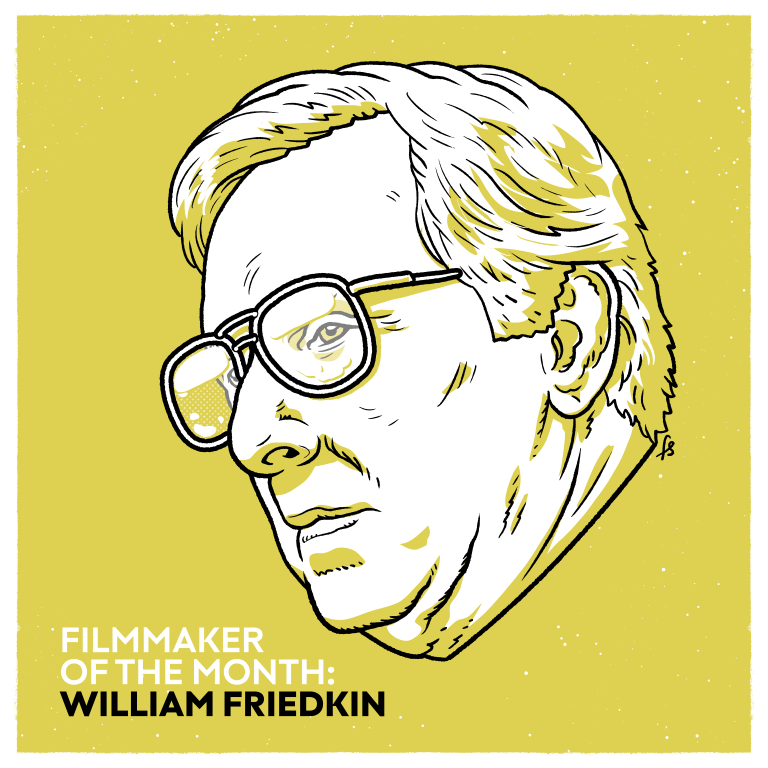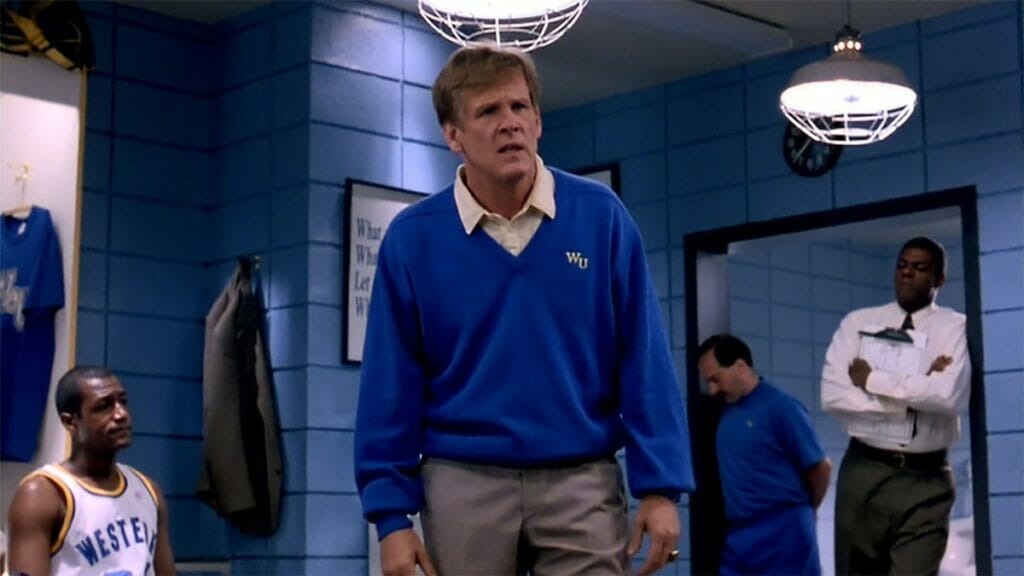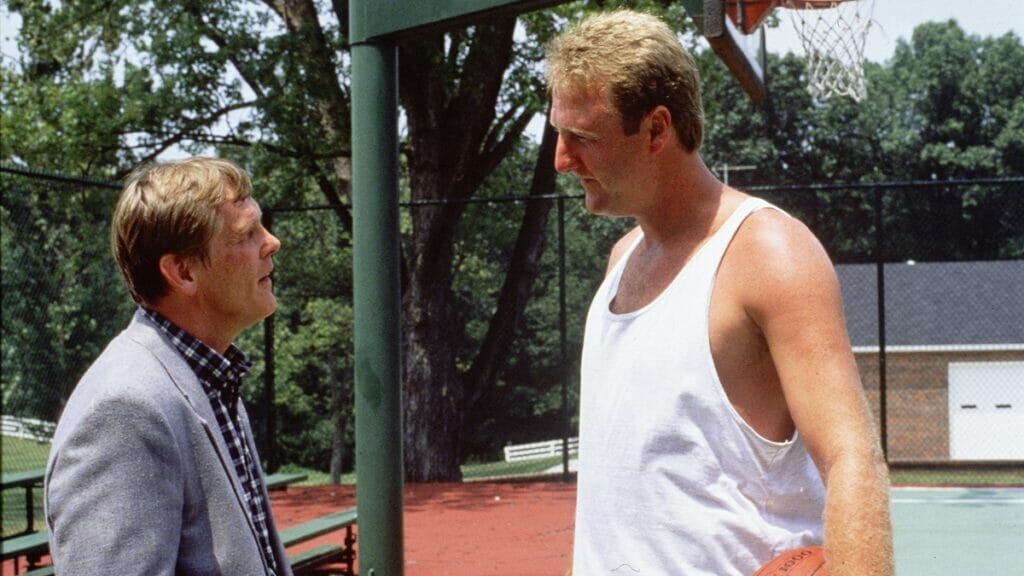Friedkin’s facile take on corruption in college sports can’t run its game.

Every month, The Spool chooses to highlight a filmmaker whose works have made a distinct mark on the cinematic landscape.
The funny thing about William Friedkin is that if you ask six people what their favorite Friedkin film is, you’ll get six different answers. These hot and cold responses marked Friedkin’s career overall, one that, for all its faults and stumbles, was never predictable or boring. He had no trademark and refused to be pinned down.
This piece was written during the 2023 SAG-AFTRA strike. Without the labor of the actors currently on strike, the works being covered here wouldn’t exist.
While difficult, it is essential when reviewing a film to evaluate it within the context of the era. To choose a relatively inoffensive hypothetical, if a movie made before 1980 refers to bipolar disorder as “manic depression,” you shouldn’t ding it for the outdated terminology. After all, at that moment, that was the proper parlance. Still, it’s not easy, especially when our understanding of an issue has changed significantly in the years since. This reviewer, for instance, struggled mightily to judge William Friedkin’s 1994 directorial effort Blue Chips on its own era-specific merits.
Thankfully, I suppose, it isn’t especially good in that context either.
Released nine years after To Live and Die in L.A. and 12 years before Bug, Blue Chips finds Friedkin in a protracted creative and critical slump. While not appreciated at the time of release, subsequent reevaluation has L.A. as an impressive, exhilarating work. The films that followed, however, were not well received upon release or since. Rampage asked some interesting questions about the death penalty but lacked strong characterization or stylish vision. The Guardian was a strange mix of pre-Hand That Rocks the Cradle caretaker paranoia and half-baked witch-based horror. And the films that followed Blue Chips? Well, there was Jade, for one.

Still, on the page, this tale of corruption in college basketball was, at the least, intriguing. It was screenwriter Ron Sheldon’s follow-up to the surprising success of White Men Can’t Jump. Star Nick Nolte had been on something of a critical hot streak with Lorenzo’s Oil, Prince of Tides, and Cape Fear, not to mention being named Sexiest Man Alive only two years earlier. The fact that I’ll Do Anything and I Love Trouble would make him the biggest box office loser of 1994 was still unknown. Hot screenwriter, reliable star, and a story somewhat in the zeitgeist. All that, plus Shaq! Who knew if he could act (sort of, it turns out), but he was the biggest thing in basketball and a tremendously charismatic guy.
Sadly, in practice, the elements don’t spark into a flame. They barely smoke.
Part of the problem, as noted above, is that it has become increasingly apparent that the NCAA is perfectly content soaking college athletes for every dollar they can generate. To then act shocked about recruits getting food or travel paid for is a wild moralistic standard. The film even mentions that the cost of getting three excellent recruits—Neon Boudeaux (Shaquille O’Neal), Butch McRae (Penny Hardaway), and Ricky Roe (Matt Nover) to come aboard—is equal to the buyout on Coach Pete’s contract. Not his full salary, just the payout. It is wild to feel fine giving the coach that money while the league expects three relatively economically disadvantaged student-athletes to play purely for the love of the game and academics.
Blue Chips’ problems extend beyond its shaky moralizing.
That said, a lot of that comes from a 2023 lens. What doesn’t is the weird game the film plays with cameos from Jerry Tarkanian, Rick Pitino, and Bobby Knight. Granted, perhaps people did not know Pitino’s rep as a slick operator as well known then as now. Still, audiences absolutely knew the NCAA sent Tark the Shark packing in 1992 and the excesses of Knight’s approach to coaching. The point of this film is that all should redouble their commitment to the purity of collegiate sports. Why then are these coaches with shady reputations given the spotlight without even subtle judgment?
Blue Chips’ problems extend beyond its shaky moralizing, though. Coach Peter has layers, certainly. Nolte does well in portraying him as a man who’s fooled himself into thinking he’s one of the good guys—before his fall from grace—even as he wheels and deals, lying with ease about matters of faith and endless pushing his ex-wife Jenny (Mary McDonnell) into helping him more than she clearly wants.

However, every character besides him is either poorly constructed or barely two-dimensional. The script can’t decide if Boudeaux is a secret genius who refuses to try for kicks and knowledge of society’s bias against him or if he truly isn’t especially bright. That leaves O’Neal to just make him charming but empty of any true motivation or inner self. Similarly, Hardaway and Nover receive one trait a piece. Hardaway worries about his family. Nover can’t get enough of looking at the women on campus. Only looking, though. The film feels oddly desexualized for how much it dwells on the forward’s, well, horniness.
Finally, there is Blue Chips’ depiction of its sport. While shot dynamically, the camera movements and editing diminish the on-court action. The frame frequently cuts the image so viewers can’t “read” the players’ relationship to the ball, hoop, teammates, or opponents. As a result, the movie feels energetic but untethered. The audience can’t care about the players because they’re paper-thin. They can’t care about the game because it’s almost impossible to follow. It’s as though Friedkin’s gift for intensity betrays him. The direction suggests he feels he must generate the excitement instead of trusting the cast, chock a block full of gifted athletes, to do it.
Ultimately, Blue Chips doesn’t work for our current moment because we know better now. It didn’t work for its era because it didn’t tell its story well. Friedkin may not have always connect, but for the first time, it felt bland and featureless.